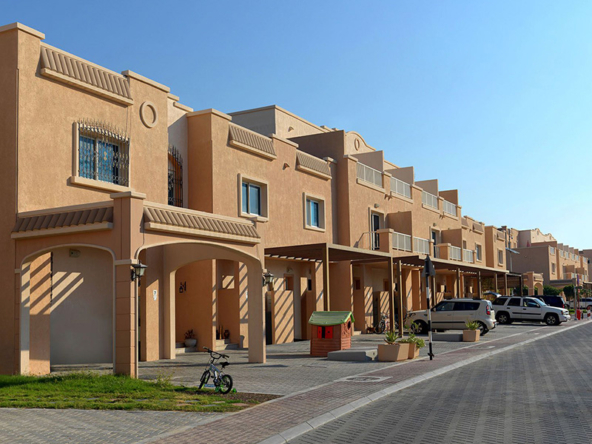The UAE real estate market offers incredible investment opportunities, but navigating the process requires careful planning and insight. Whether you’re a first-time buyer or an experienced real estate investor, these 10 expert tips will help you make a smart property purchase in the UAE and maximize your return on investment (ROI).
1. Define Your Investment Goals
Before buying, determine whether your purchase is for personal use, rental income, or capital appreciation.
-
If you plan to live in the property, consider factors such as proximity to work, schools, shopping malls, and transportation.
-
If it’s for rental income, evaluate rental yields in Dubai, Abu Dhabi, and Sharjah to choose the best area.
-
If you’re looking for capital appreciation, focus on upcoming developments, infrastructure projects, and demand growth.
2. Choose Between Ready and Off-Plan Properties
-
Ready properties generate immediate rental income and offer stable long-term value.
-
Off-plan properties are often cheaper and provide high capital gains, but carry risks such as construction delays.
-
Some investors opt for off-plan properties with post-handover payment plans, which allow for flexible payments even after receiving the property.
3. Research the Best Locations for High ROI
The best areas to buy property in the UAE include:
-
Dubai: Downtown Dubai, Business Bay, Dubai Marina, JVC, and Dubai Hills Estate.
-
Abu Dhabi: Al Reem Island, Yas Island, Saadiyat Island, and Al Raha Beach.
-
Sharjah: Aljada, Al Khan, Tilal City, and Maryam Island.
-
Ras Al Khaimah & Ajman: Growing demand due to affordable pricing and tourism projects.
4. Understand Freehold vs. Leasehold Properties
Expats can own freehold properties in designated areas, giving them full ownership rights. Leasehold properties typically have 99-year leases and ownership reverts to the freeholder upon expiry.
-
Freehold zones in Dubai: Palm Jumeirah, Downtown Dubai, Dubai Marina.
-
Freehold zones in Abu Dhabi: Al Reem Island, Yas Island, Saadiyat Island.
5. Verify the Developer’s Reputation
Always check the developer’s track record before buying off-plan properties. Look at:
-
Previous projects and their delivery timelines.
-
Developer ratings from the Dubai Land Department (DLD) or Abu Dhabi Municipality.
-
Customer reviews and investor feedback.
-
Escrow accounts: Dubai off-plan projects must have escrow accounts to protect investors.
6. Know the Financing Options for Expats and UAE Nationals
-
Cash buyers get better deals and can negotiate lower prices.
-
Mortgage buyers should check UAE bank requirements:
-
Expats: Minimum 20% down payment for properties below AED 5M, 30% for properties above AED 5M.
-
UAE Nationals: Minimum 15% down payment.
-
Interest rates: 3% to 5% per annum.
-
-
Islamic home financing options, such as Murabaha, comply with Sharia law.
7. Consider Service Charges and Hidden Costs
Factor in additional property ownership costs:
-
Annual service charges range from AED 10 to AED 50 per sq. ft.
-
DLD (Dubai Land Department) registration fees: 4% of the property value.
-
Abu Dhabi Municipality Registration Fee: 2% of the property value.
-
Real estate agent commission: Typically 2%.
-
Mortgage processing fees: 0.25% to 1% of the loan amount.
-
Property insurance for added security.
8. Take Advantage of the UAE Golden Visa
Investors buying property worth AED 2 million or more may qualify for a 10-year UAE Golden Visa, offering:
-
Long-term residency benefits.
-
Family sponsorship for spouse and children.
-
No requirement to stay in the UAE continuously for visa renewal.
Other UAE investor visa options:
-
5-year investor visa: For properties valued between AED 750,000 and AED 2 million.
-
Retirement visa: For investors above 55 years old with a property worth AED 1 million.
9. Conduct a Legal and Technical Property Inspection
Before finalizing your UAE property purchase:
-
Verify the title deed with the Dubai Land Department (DLD) or Abu Dhabi Municipality.
-
Ensure there are no outstanding debts or legal disputes on the property.
-
Check ownership records and tenancy contracts.
-
Inspect the construction quality, plumbing, electrical systems.
-
Consider hiring a certified property surveyor.
10. Work with a Trusted RERA-Registered Real Estate Agent
A professional real estate agent in the UAE helps you:
-
Find the best deals based on your budget and investment goals.
-
Negotiate better prices with developers or private sellers.
-
Handle legal paperwork for seamless transactions.
-
Provide real estate market insights on high-demand investment areas.
-
Ensure the agent is registered with RERA (Dubai) or DARI (Abu Dhabi).
Final Thoughts – Secure Your Best Property Deal in the UAE
Investing in UAE real estate can be a profitable venture if done correctly. By following these expert property investment tips, you can make a well-informed decision and secure a high-return real estate deal.
For exclusive property listings, expert investment advice, and personalized real estate solutions, contact our team today!
Start your UAE property investment journey now and maximize your ROI!




